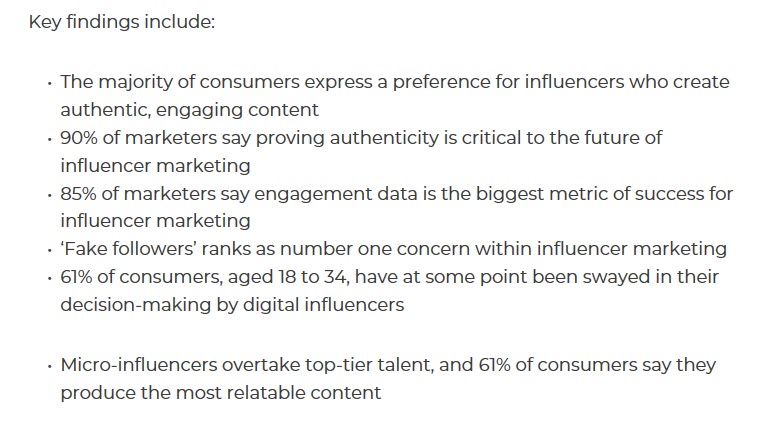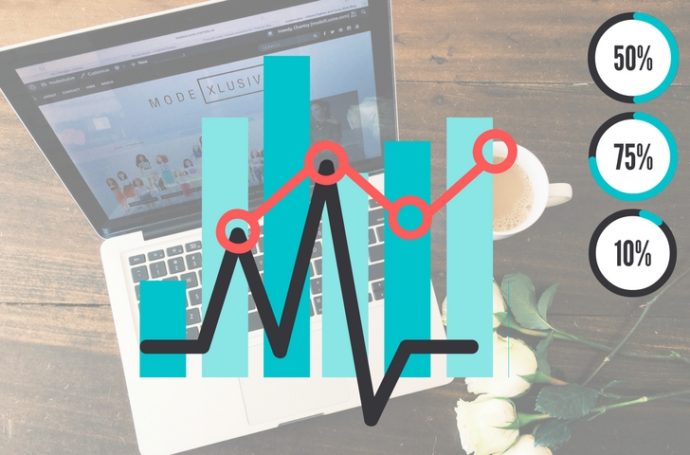I know we are all getting tired of the terms vlogger, blogger, influencer, content creator, tastemaker, but get used to it. Whether you like it or not, influencer marketing is on the rise and it’s here to stay.
With the evolving industry title, the landscape too has drastically changed over time. I can say this, because I have been involved in it now for over 5 years. As I plan for my next move in my career as an influencer, I can’t help but to think about the future of this industry.
In this post, I share some of my predictions for future trends in influencer marketing, and also provide sound advice for influencers and brands who want to survive in this new market.
Trends for 2019 Influencer Marketing in a nutshell- fake accounts are on a decline, number of influencers are on a rise, buying fake followers and engagement it out, and disclosure and accountability are in!
What I predict Influencers will or should do
- Influencers will be tasked with validating the legitimacy of their following and engagement.
- Influencers will start proactively pitching more to the brands they want to work with to maintain authenticity.
- Influencers will have to work on effectively pitching to brands and solidifying their pitches and media kits. They will have to understand their demographic and know how best to serve them.
- Influencers will have to market themselves more than ever, due to an over-saturated market. Those who have been in the game longer, and have a vision for their business will outperform the rest.
- Influencers will have to create new innovative ways to monetize and sustain their business, as brands look to work with new influencers that charge less.
- More and more, influencers will be observed under a microscope. These external pressures will force influencers to use disclosure more accurately and frequently. The influencer’s brand reputation may be at stake if disclosure is not clear.
- Eventually, Countries like Canada will create stricter regulations and hold influencers and brands accountable. This has already begun, with the publishing of Influencer Disclosure Guideline in January 2019, by an Influencer Marketing Steering Committee with Ad Standards, Canada’s national, not-for-profit, advertising self-regulatory body.
- Influencers will seek long-term brand ambassador partnerships, which are more effective for increasing awareness, and have a better potential for sales (better ROI for brands) due to the longer length of the assignment.
- Influencers will be working with fewer brands, but have more exclusive and long-term partnerships with the brands they represent.
- Influencers will focus on niche content and targeted audiences, if they want to keep organic engagement on their channels that resonate with their followers.
- Influencers will be hired as employees for larger companies or non-profit organizations. Imagine an employee that comes with advertising outlets!?
- More influencers will collaborate and create marketing and PR firms, to increase their capacity and reach when bidding on larger jobs.
- Influencers will diversity their content on more channels, and not rely on the unpredictable nature of social media platforms that change their algorithms to favour paid advertising.
What I predict brands will do or should do
- Brand will start using more sophisticated tools to evaluate the legitimacy of influencers’ following and their engagement.
- Brands may consider the power of micro influencers and not be blindsided by bloated (fake) follower numbers. Influencer marketing studies show that the percentage of engagement decreases as follower count rises.
- Strike while the iron is hot! Brands may (and should) pay closer attention to incoming pitches and accept collaborating with influencers that are actively seeking them, should they be a right fit or a perfect opportunity. For example, if an influencer is doing home renovations and pitches to an interior design firm, capitalizing on this opportunity will ensure authentic and optimal content creation opportunities. It’s a very efficient process.
- Influencer marketing will become a new business capability in most organizations. Just like how social media is now embedded in all marketing and communication teams.
- Influencer marketing strategies will be used for just about every industry.
- Companies may choose to cut the intermediary (PR and agencies) and manage influencer marketing in-house. Combing content creation with advertising means that it will be more affordable than ever for brands to hire influencers to create content and promote it.
- This has already begun, but brands will be forced to produce smarter, less wasteful and efficient PR packaging that is environmentally friendly.
What other marketers in the industry are saying
After writing my post, I wanted to do some research to see what other trends or predictions on Influencer Marketing existed out there. I found this great article by Patricio Robles Five influencer marketing issues that will dominate 2019, which was very complementary to the points I was making. Things that we agreed on were the rise in the entrepreneur influencer, brands cutting out the middle man (in their case influencer marketing agencies) and the focus on influencers’ proving the legitimacy of their influence (he calls it ROI).

ME: (does even more research)
Actually, I just stumbled on this ‘Influencer Marketing 2020’ report, which completely validates all my points! How amazing.




